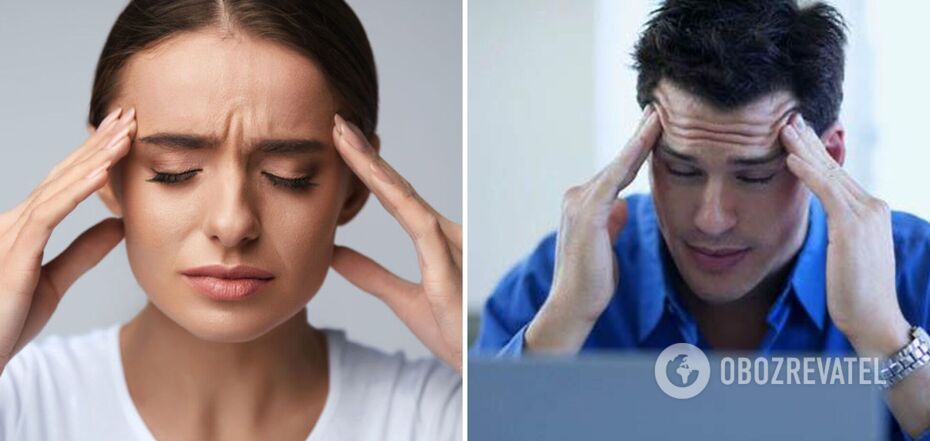Society
How to quickly get rid of a headache without medication: effective home methods
Headache is a fairly common phenomenon that causes a lot of trouble for people of all ages, genders and social status. The worst thing about this situation is that sometimes it seems that such pain appears out of nowhere and it is not so easy to get rid of it. This is especially true when you do not want to take medication for one reason or another.
Fortunately, there are traditional methods that will help, if not get rid of the headache completely, then at least reduce it to a tolerable level. However, do not forget that in case of too frequent headaches, you should consider making an appointment with a doctor and try to find the root cause of the problem rather than eliminate its symptoms.
So, here are simple methods that will help you get rid of an annoying headache without using pills.
Cold compress
If you suffer from migraines, try putting a cold compress on your head. You can use whatever you have at hand: frozen vegetables, ice cubes wrapped in a towel, a cold bottle of water. A cold shower will also help to get rid of migraines.
Apply a cold compress for 15 minutes, then pause for 15 minutes and repeat as needed.
Warm compress
While cold compresses are great for migraines, warm compresses work wonders for tension headaches. If you have problematic sinuses that cause a terrible headache, try applying a warm compress to the problem area. A warm shower will also relieve the headache.
Ginger
Ginger has many beneficial properties. A study by scientists has shown that eating ginger in case of migraine can be as effective as taking painkillers. So just make a cup of ginger tea.
Drink water
Sometimes, all you need is proper hydration to overcome an annoying headache. If you don't drink the recommended daily amount of water, this can also be the cause of your headache as your body suffers from dehydration.
Studies have shown that water can help relieve the symptoms of dehydration headaches.
However, another study showed that drinking water alone did not reduce headaches, but led to a subjective feeling of improvement in patients.
Caffeine
It may seem strange to some, but drinks containing caffeine can be helpful in case of headaches. Drinking caffeine improves mood, constricts blood vessels, and increases alertness. All of this can help to manage headache symptoms.
Essential oils
Aromatherapy has long been popular with many people. Lavender or peppermint essential oils applied to the temples can help relieve tension and soothe headaches.
Go in for sports
No, it won't help you get rid of a headache right now, but it will reduce the likelihood of it occurring in the future, as exercise will help maintain a healthy body and improve blood circulation.
One study showed that too little exercise can affect the onset of headaches in adolescents. For prevention, researchers recommend daily walks or cycling for 30 minutes.
Too little / too much sleep
Sleep problems can also trigger headaches. According to the study, adults should try to get 7 to 9 hours of sleep every night.
Acupressure massage
Massaging certain points can help relieve tension in the head and reduce headaches. In particular, massaging the temples, jaw, or neck can help relieve tension and reduce headaches that are caused by stress.
You can also try massaging the area between the eyebrows and the two points at the base of the eyebrows on either side of the bridge of the nose. Tension from the eyes or head can build up in these areas, and massaging them can help relieve it.
Massaging the neck at the base of the skull can also help relieve tension.
Why headaches occur
Headaches can be caused by many factors: stress, dental problems, poor diet, hormones, lack of sleep, dehydration, trauma, high blood pressure, noise, extreme temperatures, etc.
If you notice that headaches appear after certain events, for example, after a bad night's sleep or working at the computer for too long, try to avoid such situations.
As OBOZREVATEL previously reported, experts believe that 20% of all headaches, including migraines, are associated with the consumption of certain food components. Nutritionist Svetlana Fus named the main "irritants".



























